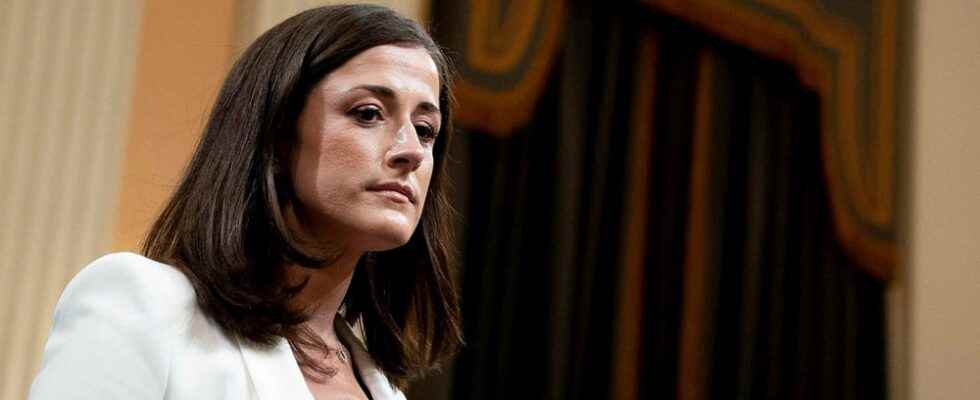Cassidy Hutchinson grew up in the New Jersey neighborhood that Bruce Springsteen sings about in “My Hometown.” She graduated from high school in 2015, took an internship at the White House and was accepted into Donald Trump’s inner circle.
This week gave she the most icy testimony before the US Congress in modern times and thus became a potentially historical figure in an instant.
She described how the ex-president threw plates at the wall, beat a bodyguard, was on the verge of being deposed by his own ministers and for several hours refused to ask his supporters to leave the congress building during the 2021 storm.
Above all she revealed that Trump ordered security personnel to let people with semi-automatic rifles into the fenced area so they could “march with the rest of us” toward the Capitol.
No one should be surprised. Everyone who has not lived under a rock since 2015 knows that Trump has deep authoritarian reflexes, as well as that he tried to overthrow democracy between November 2020 and January 2021 and incited militant groups to attack Congress.
But legally, the task is explosive. It confirms Trump’s intent to prevent the transfer of power by force, a crime that could give him ten years in prison.
Additional witnesses will need to substantiate Hutchinson’s statement – in which case it is now clear that the congressional hearings are aimed at presenting hard evidence to force a prosecution rather than convincing Americans in general of Trump’s moral guilt.
Play with the idea that Trump will become president again, take over the investigation and give again with the same coin.
And only Joe Biden’s Attorney General Merrick Garland can prosecute Trump (at the federal level). He withdraws for this for completely understandable reasons. No US president has been prosecuted for crimes after his term in office, to bring Trump to justice would be to cross a kind of legal and political Rubicon. The process would last for years, widen the already abysmal gap between the parties and create a life-threatening precedent.
Play for example with the idea that Trump will become president again, take over the investigation and begin to conduct politically motivated processes for revenge – something he opened up already with the cheers of “locking in” Hillary Clinton.
It is no coincidence that Obama dismissed the leftist demands to prosecute George W Bush for torture in connection with the “war on terror”. Or that Gerald Ford pardoned Representative Richard Nixon after Watergate. Call it enlightened self-interest or democratic self-preservation drive.
On the other hand there is a crucial difference. Under Watergate, the political correction mechanisms still worked, which ultimately rested on mutually respected norms. Republicans in Congress took Nixon’s hand when his guilt became apparent. The president resigned voluntarily and thus avoided the Supreme Court and a potential criminal prosecution. The system worked.
In a liberal democracy, no one is above the law, not even the most powerful person in the country. That is the whole point of a constitution.
With Trump, it is just the opposite. Republicans still follow his slightest hint. They maintain that the storming of the Capitol was “a legitimate political expression” and boycott – with a few notable exceptions – the Congress Committee, which was initially intended to function as a cross-bloc truth commission. The party is not even interested in investigating the attack on Congress. The democratic correction mechanisms have thus in practice collapsed.
Add to that Trumps any crime far exceeds Nixon’s, and Garland may have simply been prosecuted. It would fundamentally shake American democracy, but to relinquish if the evidence is convincing would be an equally fatal blow to the rule of law. The signal then becomes that the president is free to do what he wants – including trying to overthrow democracy by force.
That is a very dangerous precedent in itself. Above all, it would be a legal misconduct. In a liberal democracy, no one is above the law, not even the most powerful person in the country. That is the whole point of a constitution. If the evidence holds, Trump must be prosecuted.
